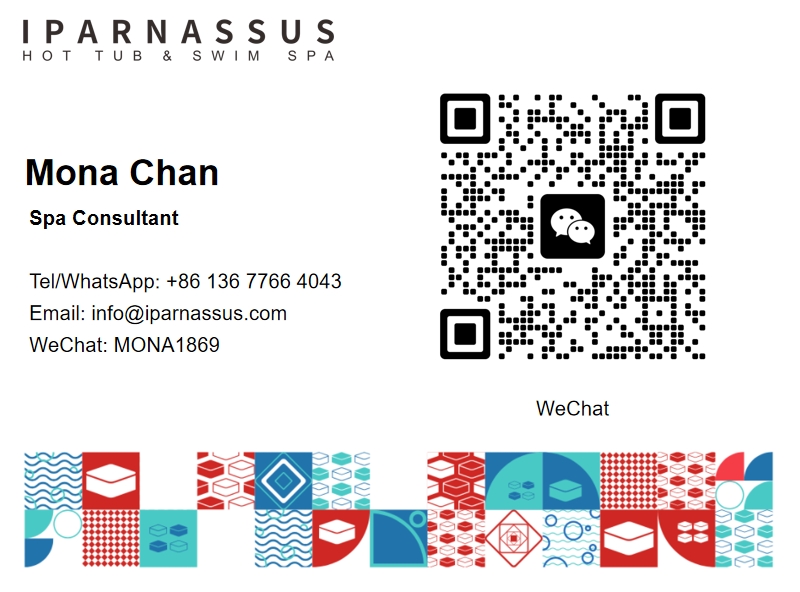Is a hot tub good for recovery?
2025-07-01 20:55:06
Recovery is a crucial component of any fitness routine or rehabilitation process, and many people are turning to hot tubs as a natural way to enhance their recovery experience. The combination of warm water, buoyancy, and hydrostatic pressure creates an ideal environment for muscle relaxation and healing. Hot tubs offer a therapeutic sanctuary where the body can decompress after intense physical activity, chronic stress, or injury. The heated water increases blood circulation, reduces muscle tension, and provides a soothing environment that promotes both physical and mental restoration. Understanding how hot tub therapy works and its various applications can help you determine whether this form of hydrotherapy is right for your recovery needs.
How Does a Hot Tub Help with Muscle Recovery?
Enhanced Blood Circulation and Oxygen Delivery
When you immerse yourself in a hot tub, the warm water causes vasodilation, which significantly improves blood circulation throughout your body. This enhanced circulation delivers more oxygen and essential nutrients to tired, overworked muscles while simultaneously helping to remove metabolic waste products like lactic acid that accumulate during exercise. The improved blood flow accelerates the natural healing process, allowing your muscles to recover more efficiently than they would through rest alone. Hot tub sessions of 15-20 minutes can provide sustained benefits that continue even after you exit the water, as your body maintains improved circulation patterns for several hours.
Reduction of Muscle Tension and Inflammation
The combination of heat and buoyancy in a hot tub creates an optimal environment for muscle relaxation and inflammation reduction. The warm water helps to relax muscle fibers and reduce the stiffness that often accompanies intense physical activity or prolonged periods of inactivity. Additionally, the hydrostatic pressure of the water provides gentle compression that can help reduce swelling and inflammation in affected areas. Regular hot tub use has been shown to decrease the production of inflammatory markers in the body, contributing to faster recovery times and reduced post-exercise soreness. This natural anti-inflammatory effect makes hot tubs particularly beneficial for athletes and individuals recovering from injuries.
Improved Flexibility and Range of Motion
Hot tub therapy can significantly improve flexibility and range of motion, which are essential components of effective recovery. The warm water environment allows your muscles and joints to move more freely, making it easier to perform gentle stretching exercises while soaking. The heat helps to soften connective tissues, making them more pliable and responsive to movement. Many physical therapists recommend hot tub sessions as part of rehabilitation programs because the buoyant environment reduces the stress on joints while allowing for therapeutic movement. This improved flexibility not only aids in recovery but also helps prevent future injuries by maintaining optimal muscle and joint function.
Can Hot Tubs Reduce Post-Workout Soreness?
Accelerated Lactic Acid Clearance
One of the primary benefits of hot tub use for post-workout recovery is its ability to accelerate the clearance of lactic acid and other metabolic byproducts from muscle tissue. During intense exercise, muscles produce lactic acid as a byproduct of anaerobic metabolism, which contributes to the burning sensation and subsequent soreness experienced after workouts. The enhanced circulation provided by hot tub therapy helps to flush these waste products from the muscles more quickly than passive recovery methods. Research has demonstrated that athletes who use hot tubs after training sessions experience significantly less delayed onset muscle soreness (DOMS) compared to those who rely solely on rest for recovery. The optimal timing for hot tub use is within 2-3 hours after exercise when lactic acid levels are still elevated.
Pain Relief Through Heat Therapy
The therapeutic heat provided by hot tubs activates the body's natural pain relief mechanisms through a process known as the gate control theory. When heat receptors in the skin are stimulated, they send signals to the brain that can override pain signals from deeper tissues, providing immediate relief from post-workout discomfort. Additionally, the heat promotes the release of endorphins, which are the body's natural painkillers, creating a sense of well-being and relaxation. Hot tub sessions can provide sustained pain relief that lasts for several hours after use, making it easier to maintain regular exercise routines without being hindered by excessive soreness. This natural pain management approach is particularly appealing to those who prefer to avoid over-the-counter pain medications.
Stress Hormone Regulation
Hot tub use plays a significant role in regulating stress hormones like cortisol, which can contribute to prolonged muscle soreness and delayed recovery. The relaxing environment of a hot tub helps to activate the parasympathetic nervous system, which promotes rest and recovery while reducing the production of stress hormones. Lower cortisol levels are associated with improved muscle protein synthesis, better sleep quality, and enhanced overall recovery. The meditative qualities of hot tub soaking also provide mental benefits that complement the physical aspects of recovery, creating a holistic approach to post-workout restoration. Regular hot tub use can help establish healthy recovery patterns that support long-term fitness goals and overall well-being.
What Are the Mental Health Benefits of Hot Tub Recovery?
Stress Reduction and Relaxation Response
Hot tubs provide an exceptional environment for stress reduction and mental recovery, offering a peaceful retreat from the demands of daily life. The warm water and gentle massaging action of hot tub jets activate the body's relaxation response, leading to decreased production of stress hormones and increased release of mood-enhancing neurotransmitters. This physiological shift helps to clear the mind, reduce anxiety, and promote a sense of calm that extends well beyond the soaking session. Many users report that regular hot tub use helps them develop better coping mechanisms for stress and improved emotional resilience. The ritual of hot tub relaxation can become a valuable tool for maintaining mental health and preventing burnout from work, exercise, or other life stressors.
Improved Sleep Quality and Recovery
The relationship between hot tub use and improved sleep quality is well-documented, with many users experiencing deeper, more restorative sleep after evening soaking sessions. The warm water raises your core body temperature, and when you exit the hot tub, the subsequent cooling process triggers the body's natural sleep mechanisms. This temperature regulation mimics the natural circadian rhythm changes that occur before bedtime, making it easier to fall asleep and stay asleep throughout the night. Better sleep quality directly impacts recovery by allowing the body more time for tissue repair, hormone regulation, and memory consolidation. Hot tub users often report feeling more refreshed and energized the following day, creating a positive cycle of recovery and performance.
Social Connection and Mental Well-being
Hot tubs provide unique opportunities for social connection and shared relaxation experiences that contribute significantly to mental health and recovery. Whether used with family members, friends, or as part of a couple's routine, hot tub time encourages meaningful conversations and quality time together without the distractions of technology or other daily obligations. This social aspect of hot tub use can help strengthen relationships, provide emotional support, and create positive memories associated with recovery and self-care. The shared experience of relaxation and the intimate setting of a hot tub often lead to deeper connections and improved communication. For individuals recovering from injury or dealing with chronic conditions, the social support available through hot tub sharing can be an important component of overall healing and mental wellness.
Conclusion
Hot tubs offer comprehensive recovery benefits that address both physical and mental aspects of healing and restoration. From enhanced muscle recovery and reduced soreness to improved sleep quality and stress reduction, hot tub therapy provides a holistic approach to recovery that can benefit athletes, individuals with chronic conditions, and anyone seeking improved well-being. The combination of heat therapy, buoyancy, and hydrotherapy creates an optimal environment for natural healing processes while promoting relaxation and mental clarity.
Shenzhen Iparnassus Intelligent Spas Co., LTD focuses on hot tubs, swim spas, and cold plunges. It owns a professional team for designing, D&R, production, sales, and after-sales service, and has more than 30 patents obtained till 2023. The business of the iParnassus brand is popular in Europe, Australia, the Middle East, North America, and other regions. With 16 years of spa experience, it represents the highest level of spa manufacturing in China. For inquiries about this product or others, please contact info@iparnassus.com for dedicated service.
References
1. Cochrane, D.J. (2004). Alternating hot and cold water immersion for athlete recovery: a review. Physical Therapy in Sport, 5(1), 26-32.
2. Vaile, J., Halson, S., Gill, N., & Dawson, B. (2008). Effect of hydrotherapy on the signs and symptoms of delayed onset muscle soreness. European Journal of Applied Physiology, 102(4), 447-455.
3. Wilcock, I.M., Cronin, J.B., & Hing, W.A. (2006). Physiological response to water immersion: a method for sport recovery? Sports Medicine, 36(9), 747-765.
4. Bleakley, C., McDonough, S., Gardner, E., Baxter, G.D., Hopkins, J.T., & Davison, G.W. (2012). Cold-water immersion (cryotherapy) for preventing and treating muscle soreness after exercise. Cochrane Database of Systematic Reviews, 2, CD008262.
5. Halson, S.L. (2014). Recovery techniques for athletes. Sports Science Exchange, 27(120), 1-6.
6. Mooventhan, A., & Nivethitha, L. (2014). Scientific evidence-based effects of hydrotherapy on various systems of the body. North American Journal of Medical Sciences, 6(5), 199-209.
_1768872582663.webp)


